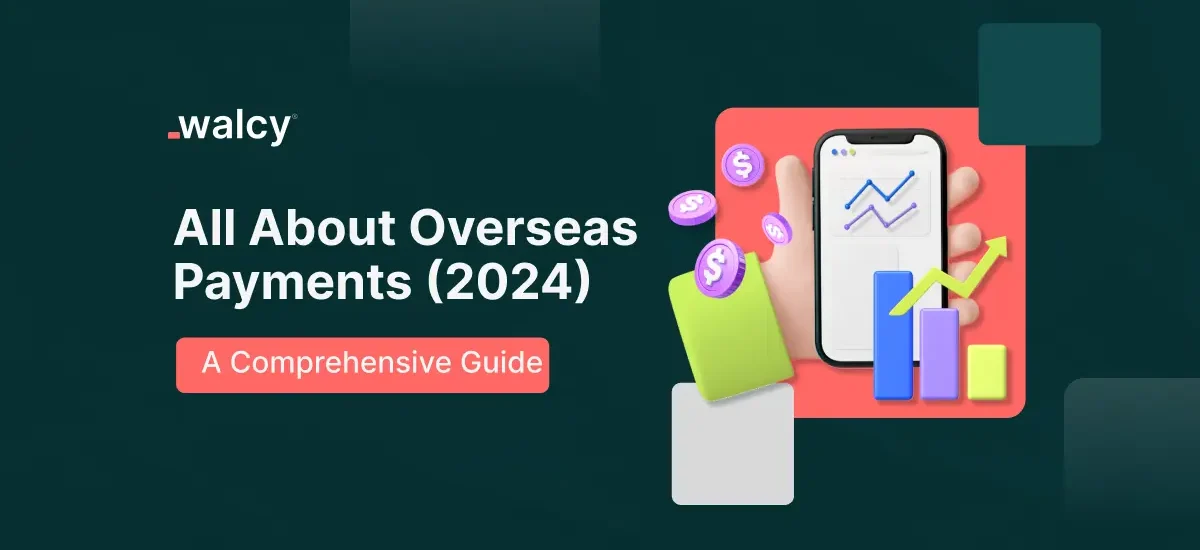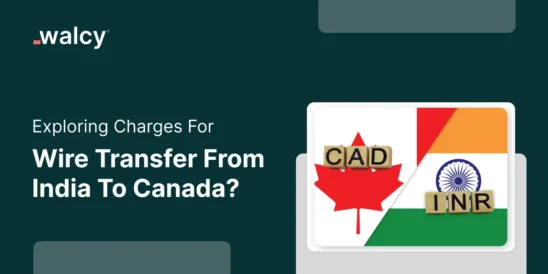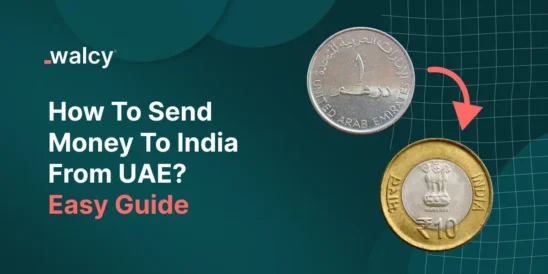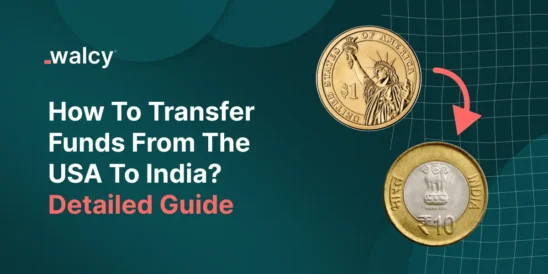Managing overseas payments easily, effectively, and efficiently is crucial nowadays. Be you a business or an individual freelancer, international payments are always on top of your head.
Despite living in the 21st century, era of technology, making overseas payments is challenging, inconvenient, and expensive.
It is well known that making overseas bank transfers through traditional banks could cost you a fortune. Financial regulations, geopolitical risks, and fluctuating exchange rates can be the affecting factors.
Alternatively, multiple Neobanks enable cross-border transactions and aim to become an easy way to receive money from abroad. Despite challenges being similar, they provide services at a low cost as compared to banks.
Walcy is your best choice if you create global accounts, make overseas payments, and foreign currency transfers. It provides hassle-free and the cheapest international payment services.
Whether you are looking for B2B international payments or B2C international payments, knowing the basics is highly recommended. In this blog, we will discuss everything that everyone should know before making a cross-border transfer.
What Are Overseas Payments?
Overseas payments, also known as international payments or cross-border payments, refer to financial transactions conducted between entities located in different countries. These transactions involve the transfer of funds or the settlement of obligations across national borders.
Over time the need for international money transfers has increased a lot due to globalization. Business are expanding their services across the globe and people are working remotely in the post-covid era.
With the global business expansion and remote working culture, the need for overseas transactions is just rising every day. On the other hand, the increased trend of living as expats has also contributed to the growth of foreign currency transfers.
An “expatriate,” often known as an “expat,” is a person who resides (either permanently or temporarily) outside of their nation of origin. One of the benefits of living as an expat is you get the opportunity to fully experience all aspects of a foreign culture rather than visiting just on vacation.
Read about: International Money Transfer Charges | How Much Does It Cost?
What Are Overseas Payments Used For?
International payments serve a multitude of purposes across different sectors. Some of them are:
Purchasing Goods And Services:
Many companies purchase products, raw materials, or services from foreign vendors to take advantage of lower rates, superior quality, and many more.
For instance, a German supplier may supply particular auto parts to a US automaker. The US producer would send an overseas payment to the supplier.
To be more clear, export/ import companies would be the major users who need global payments regularly.
Salary Payments To Foreign Employees Or Contractors
As the business is expanding globally, they have a presence in different countries.
At the same time, they used to have foreign employees and contractors working for them. For instance, a USA-based tech startup might hire a software engineer from Nepal, and it would pay him using an international payment solution. The same applies to other freelancers and remote workers.
Overseas Client Payment
Another use of overseas payment is receiving payment from international clients. Especially, the Agencies and Tech companies used to have their clients all over the world. They are supposed to receive payment regularly. To receive it, international payment shall be the better option.
Read about: The Best Way To Receive International Payments In India
Paying Dividends Or Interest
A company must make international payments when it borrows money from foreign lenders or has foreign investors. For instance, if an Indian company lists its shares on the New York Stock Exchange and has American shareholders, it will use foreign payments to pay dividends to those stockholders.
Foreign Investment
Any venture capital or angel investor who has invested in a foreign country would use overseas transactions to send and receive money.
Read about: Cross-Border Investment: Best Countries to Invest in 2025
Acquiring Assets
Many businesses have begun to operate in multiple countries as a result of globalization.
Businesses may invest in assets in foreign nations as a component of their operations or expansion plans.
For instance, an American real estate corporation might purchase property in India and use an overseas transaction to pay for it. In the same way, any company might possess assets in any nation incorporating international transactions.
Transactions On The Stock Market
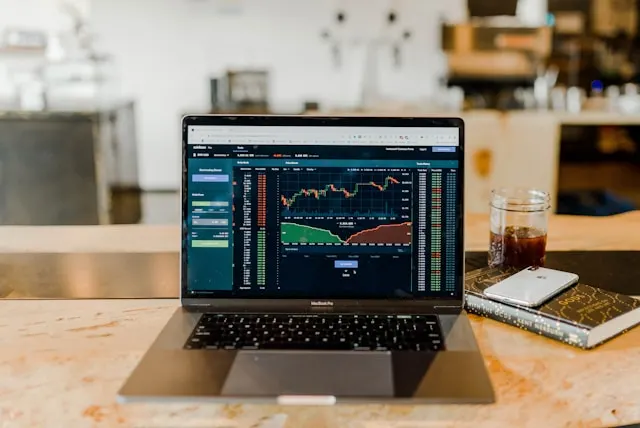
Businesses frequently need to make cross-border payments while dealing with foreign exchanges. For instance, anyone who wishes to trade or purchase foreign stocks might use cross-border payments.
Charitable Donations
Last but not least, charitable donations from people or businesses in foreign countries can also be made through international transactions.
These days, business seems to donate regularly to charity organizations as a part of Corporate Social Responsibility. Also, any business or individual can use overseas payment methods to make donations during natural disasters all over the world.
International Payment Systems
International Payment Systems are the mechanisms that facilitate making overseas payments effective, reliable, secure, and trustworthy.
These systems provide the infrastructure for transferring money between financial institutions, frequently crossing borders and currencies.
Though there are numerous international payment systems, some of the most popular foreign payment systems are as follows:
SWIFT (Society for Worldwide Interbank Financial Telecommunication)
Swift is the world’s largest provider of secure financial messaging solutions and a global cooperative owned by its members.
It provides secure messaging services in over 200 countries through more than 11,000 financial institutions.
Although SWIFT doesn’t transfer money itself, it does communicate payment orders that are settled by mutually used accounts between institutions.
Many forms of foreign transactions, such as money transfers, credit letters, and securities trades, are handled via SWIFT.
Read about: SWIFT Alternatives For Businesses For Crossborder Payment.
SEPA (Single Euro Payments Area)
SEPA aims to simplify cashless payments and standardize transactions both inside and between EU member states.
Every year, SEPA handles over 46 billion transactions. The European Payment Council (EPC) oversees it.
Account holders can receive payments by direct deposit from their bank account, thanks to SEPA. Furthermore, they enable users to electronically send money from their bank account while abroad.
Fedwire (Federal Reserve Wire Network)
The Fedwire Funds Service is a gross settlement method that operates in real time. Banks, companies, and government organizations rely on the top electronic money transfer provider, Fedwire funds service, for crucial same-day transactions.
The finality of payments credited to Federal Reserve Bank master accounts is advantageous to Fedwire Funds Service participants.
Fedwire is used by financial institutions to make critical, highly valuable domestic and international payments in US dollars.
CIPS (China International Payment System)
This Chinese payment system provides clearing and settlement services to users who transact with each other in renminbi (RMB) across international borders.
To date, banks and other financial institutions from 47 nations and regions on six continents are found to be involved in this financial system. The goal of CIPS is to make Chinese currency more widely used.
Read more about: CIPS: Cross-Border Interbank Payment System. China’s Alternative to SWIFT
Ways Of Making Overseas Payments?
In the modern world, there are numerous ways to conduct cross-border transactions. Let us find some of few most popular techniques used:
Wire Transfers
A wire transfer is a type of electronic money transfer where the participants do not exchange real money.
All instructions regarding the transfer are provided by the sender. It includes instructions like the recipient’s name, bank, account number, amount, and on rare occasions a pickup location.
A bank (often called a “bank wire”) or a nonbank money transfer provider can facilitate the wire transfer.
International Payment Gateways
Companies that accept payments from overseas will require an international payment gateway that allows worldwide or multi-currency payments and has a multilingual interface.
For any businesses that accept credit/debit card payments, a payment gateway is an essential tool for verifying the card information of their customers. The number of payment gateways is increasing every day. Some of the most popular payment gateways are:
Businesses can make overseas payments using the Walcy platform. Not only can one send and receive the money but can open global accounts and get the best forex rates.
PayPal is an online payment system by which you can send and receive money around the world. PayPal provides an extensive array of convenient and flexible payment alternatives.
You can make use of your bank account as well as well-known credit and debit cards including American Express, Mastercard, Visa, and Discover.
Stripe is a safe and most popular online payment gateway. If the money comes from a currency that the platform supports, you can accept international payments made using Stripe. Currently, Stripe supports 44 countries and 135 currencies, offering competitive rates for each country.
Sage Pay is an integrated accounting, ERP, and payment processing solution.
You can make and send invoices with it. You can handle bookkeeping and take payments in multiple currencies. PayPal payments, e-wallets, and popular credit and debit cards are all supported.
Several levels of prices for Sage Pay are available depending on the size of your company. Regretfully, it doesn’t specify the transaction costs that are charged.
(Know more about payment gateways)
Bank Transfers
It is one of the most common and traditional ways of making cross-border payments. Normally banks interconnect themselves with wire transfer to make the payment. Additionally, they make use of international payment systems like SWIFT networks as well.
(Know the differences between Bank Transfers and Bank remittances)
Digital Currencies

These days Digital currencies are also quite popular in terms of international payments.
Digital currency is a form of currency that is available only in digital or electronic form. It is accounted for and transferred using online systems.
Digital money generally represents fiat currencies, such as dollars or euros. Some popular digital currencies are Bitcoin, Binance Coin, Dogecoin, etc.
Global ACH payments
These days electronic money transfers between banks in several nations are made possible via the payment processing system known as global ACH. It is also referred to as cross-border ACH or international ACH. The use of paper checks or actual currency is eliminated in global ACH, which enables direct debits and credits.
(Know more about ACH Transfers)
Challenges Associated With Cross-Border Payments?
Sending and receiving money internationally is itself a challenging task. Some major challenges that you should know are:
Cost Complexity
Payment methods that do not use actual paper money typically come with extra expenses. A business or other payee entity may frequently need to make an upfront payment to access foreign currency and start the transaction.
The fluctuation of currency exchange rates can have an impact on both buyers and sellers, as they can experience deficits in the event of a rate shift during the period between the transaction’s initiation and settlement.
That’s why merchants allow buyers to select payment gateways that find the most attractive exchange rate.
Know about the costs associated with international payments.
Get the best forex rates with Walcy.
Regulatory Requirements

Cross-border transactions involve entities operating in multiple countries. The contract and how it is interpreted in one nation may not be the same in another. Furthermore, it can be difficult to ascertain which interpretation is valid in a given nation, which can cause problems like legal disputes. Similar to laws, there might be differences in taxes.
Rules exist to prevent double taxes, however, they might only be applicable in certain nations, which could result in a hefty transaction cost. Additionally, this puts more financial strain on all parties involved.
Security Threats
You can make sure you adhere to the strongest security procedures, but you can’t say the same for the other persons. It’s possible to come across other organizations with poor security procedures, which could lead to data breaches and at any time theft of funds. And there may be financial and reputational damages from this.
Payment Processing
Cross-border transactions can be difficult, time-consuming, and subject to cancellation at any time, which can lead to conflict, delays, and a poor experience for everyone involved. This is often the result of insufficient payment information, AML investigations, and other identification of fraud procedures.
International payments are not as digitized or standardized as other types of transactions, thus the process is frequently labor-intensive and may cause the payment to be delayed for a few weeks.
Read about: What Is Money Laundering? Definition, Types And Examples.
Lack of Transparency
Complete transparency is not possessed by any of the parties engaged in the transaction. It simply means that real-time transaction updates are not available to banks, businesses, or customers.
This affects the customer’s experience and keeps the institutions from evaluating data and providing enhanced offerings.
Best Practices – Sending And Receiving International Payments
Understand The Costs
The most crucial step before transferring money to a foreign bank is to understand the associated costs. Make sure you understand all associated costs like transaction costs, exchange rate costs, and international bank transfer fees for acting as an intermediary.
(Know about the cheapest way to transfer money abroad)
Choose the Right Payment Method
The right payment option should be chosen by considering several elements. It shall include cost, convenience, security, and transaction speed. To find the best alternative for your particular needs, compare options including digital wallets, credit cards, bank transfers, and currency.
Consider Currency Exchange Rates

The cost of transactions made overseas may be affected by fluctuations in exchange rates. You should stay abreast of changes in the currency market to minimize the risk of exchange rate volatility and optimize your foreign exchange operations. As an alternative, you can consider creating multi-currency accounts or employing hedging strategies.
Prioritize Security and Compliance
You must make sure that all regulations are followed and robust security measures are implemented to protect sensitive financial data. Choose trustworthy payment service providers with strong encryption systems and compliance certifications to lower the risk of fraud and data breaches.
Confirm The Recipient’s Details
Before sending an overseas payment, be sure the recipient’s information is correct. Mistakes of small characters in account numbers, routing numbers, or addresses may result in misdirected payments, delays, or extra costs.
Leverage Technology for Efficiency
For quicker payment processes and less manual error, you shall use financial management software, API connectors, and automation technologies.
Explore cutting-edge fintech options that provide features like rapid settlement, recurring billing, and batch payments. It assists you to improve efficiency and gain control over your foreign transactions.
Plan for Contingencies
Do not forget to make backup plans ready to lessen the impact of any delays that might occur. It is equally probable of experiencing technical difficulties, regulatory changes, or currency fluctuations, in your international global pay.
To effectively negotiate unforeseen obstacles, stay connected with your financial partners and seek professional guidance when necessary.
Conclusion
In a nutshell, it can be concluded that making overseas payments can be challenging unless you know how it works. You should also know about its affecting factors.
It is not as simple as domestic payment and involves various affecting factors such as financial regulations, geopolitical risks, and fluctuating exchange rates.
There are multiple ways to make the payments but choosing the best option might be a little challenging. You should be aware of security threats, and legal requirements.
Similarly, international payments are not as transparent as domestic ones. You are advised to stay in regular communication with your financial partner to resolve any obstacles that might appear.
Making cross-border payments through Walcy is recommended as it is much cheaper and more efficient as compared to others. You can also open a global account with Walcy Bank for its multidimensional use.
Know how you can empower your business using Walcy’s currency account?
Do follow us on Facebook and LinkedIn, to stay connected with us.
